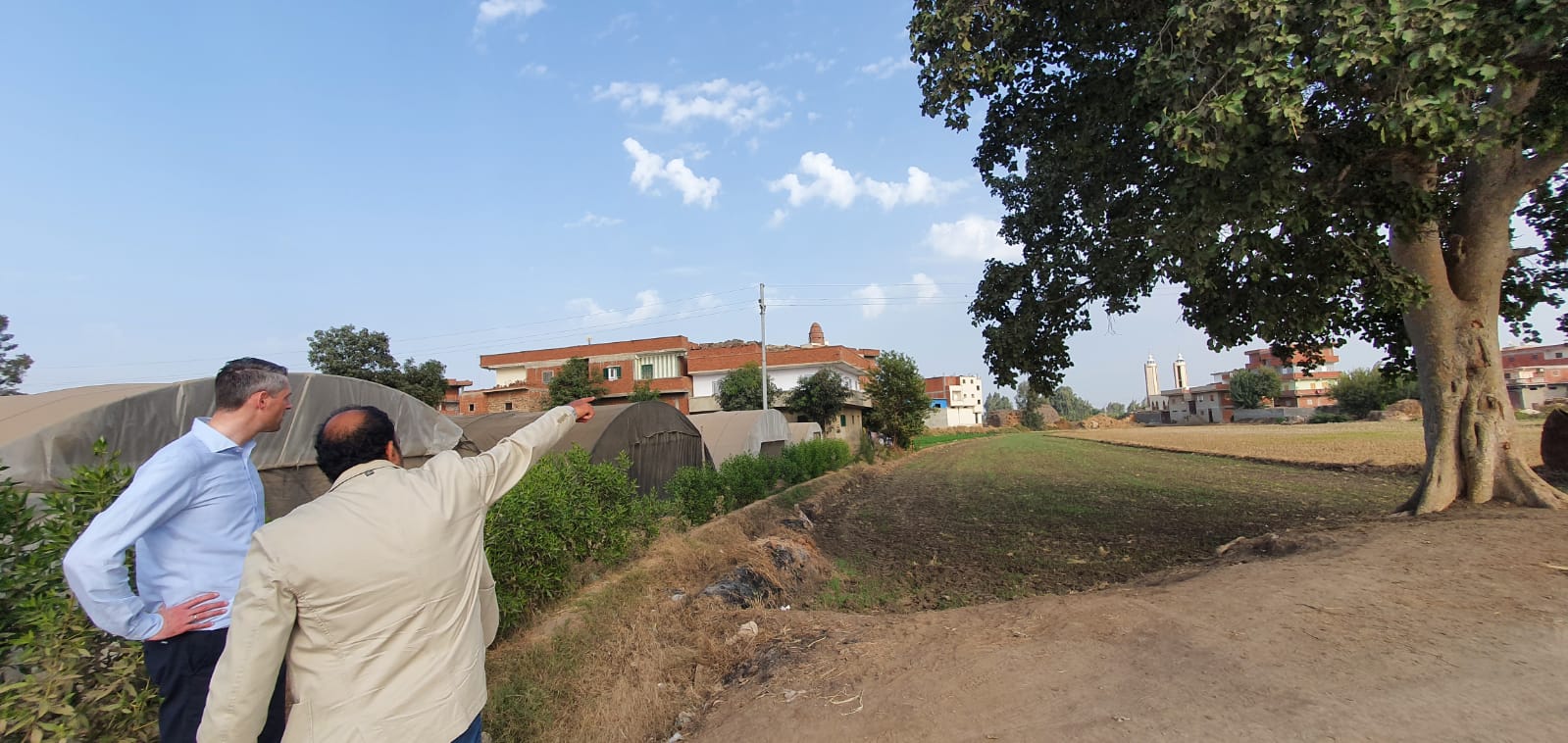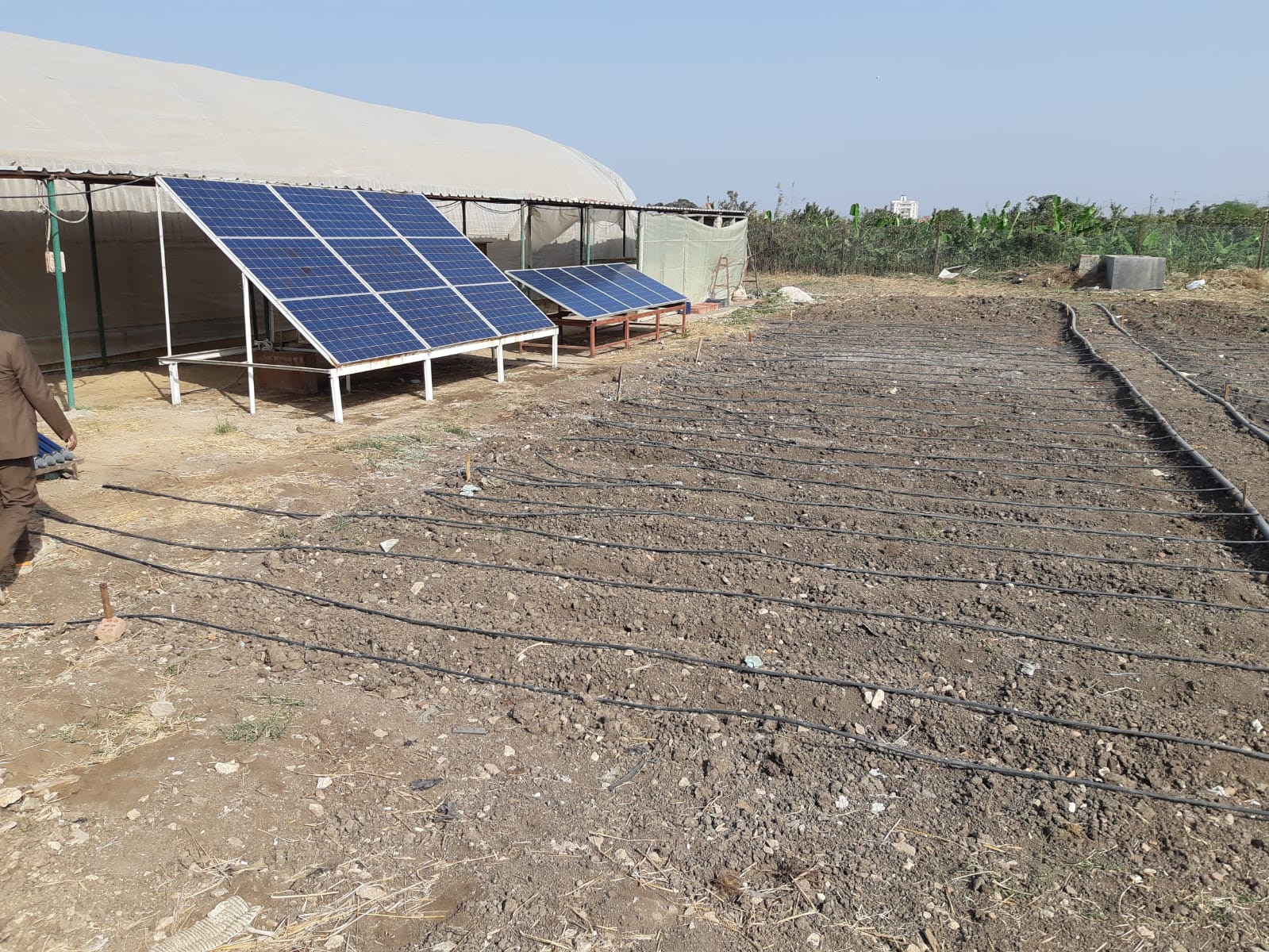The interplay between water and food systems: the case of Egypt
This is part 15 of a blog series on food systems. This article was written by Catharien Terwisscha van Scheltinga and Gert-Jan Wilbers.
Water and food systems all over the world are under severe pressure. Because these systems are strongly interrelated, it makes sense to connect the two in development pathways. All too often, the two are treated in their own separate silos. It is about time to change this.
Climate change as well as development-driven changes entail that the food system must change towards higher sustainability and resilience while simultaneously meeting increasing demands for food production. Not only the number of people is increasing, but also their diets are changing, as are the risks for and constraints to production and consumption. How to address this in arid and semi-arid environments?

A field visit. Left: Gert-Jan Wilbers.
In 2020, a small team at WUR (Wageningen University & Research) worked on a background paper about water and food system interlinkages for the IFAD Rural Development Report on Food Systems. As an international agency on finance in agriculture, IFAD attaches importance to the concept of food systems. However, among the over 20 background papers, this was the only one making the link to water. The paper clearly links the concept of food systems an water footprint, thus bridging both ‘worlds’ that often operate in their silos.
Efficient water use is vital for Egypt
In arid and semi-arid countries, it is obvious that the food situation is linked to water availability. In the case of Egypt, the water resources do not cover the production of all the food consumed. De facto, water is imported. Efficient water use is vital for Egypt. Which crop to grow is a matter of capacities of farmers on the one hand, and macroeconomic policy decisions on the other. The analysis in this paper makes this clear and compares blue and green water use in Middle East and North Africa.
The paper reveals that crop selection in the Egypt and neighbouring countries should maximize the value of domestic available water sources to compensate for unpreventable food imports. For example: within the scope of population growth in Egypt and the increasing demand of poultry, the domestic water sources are insufficient for both chicken and feed to be produced within Egypt.

Drip irrigation in Egypt.
More applied research is also being developed in the JCAR programme – a collaboration research programme of various Egyptian institutes, WUR and Deltares as a lead. In this four-year applied research programme, the focus will be on irrigation modernization, application and feasibility of controlled drainage, updating large pumping stations and coastal zone management. These research topics are relevant within the scope of sustainable development in Egypt in the context of climate change and population growth.
The inception of the research is on-going currently. This is not only very relevant in the context of SDG ‘Zero Hunger’, but also to both the COP26 and the Amsterdam International Water Week. Connecting the worlds of food, climate change and water leads to meaningful knowledge and solutions for farmers.
In an earlier blog we already indicated how we work on a link between adaptive delta management and food system approaches. Read more.
Read more
- Read the article: Unravelling the interplay between water and food systems in arid and semi-arid environments: the case of Egypt
- WUR Research Theme: Food Systems
- WUR Research Programme: Food Security and the Value of Water
- Applying a Food Systems Approach: the key to Zero Hunger in 2030

